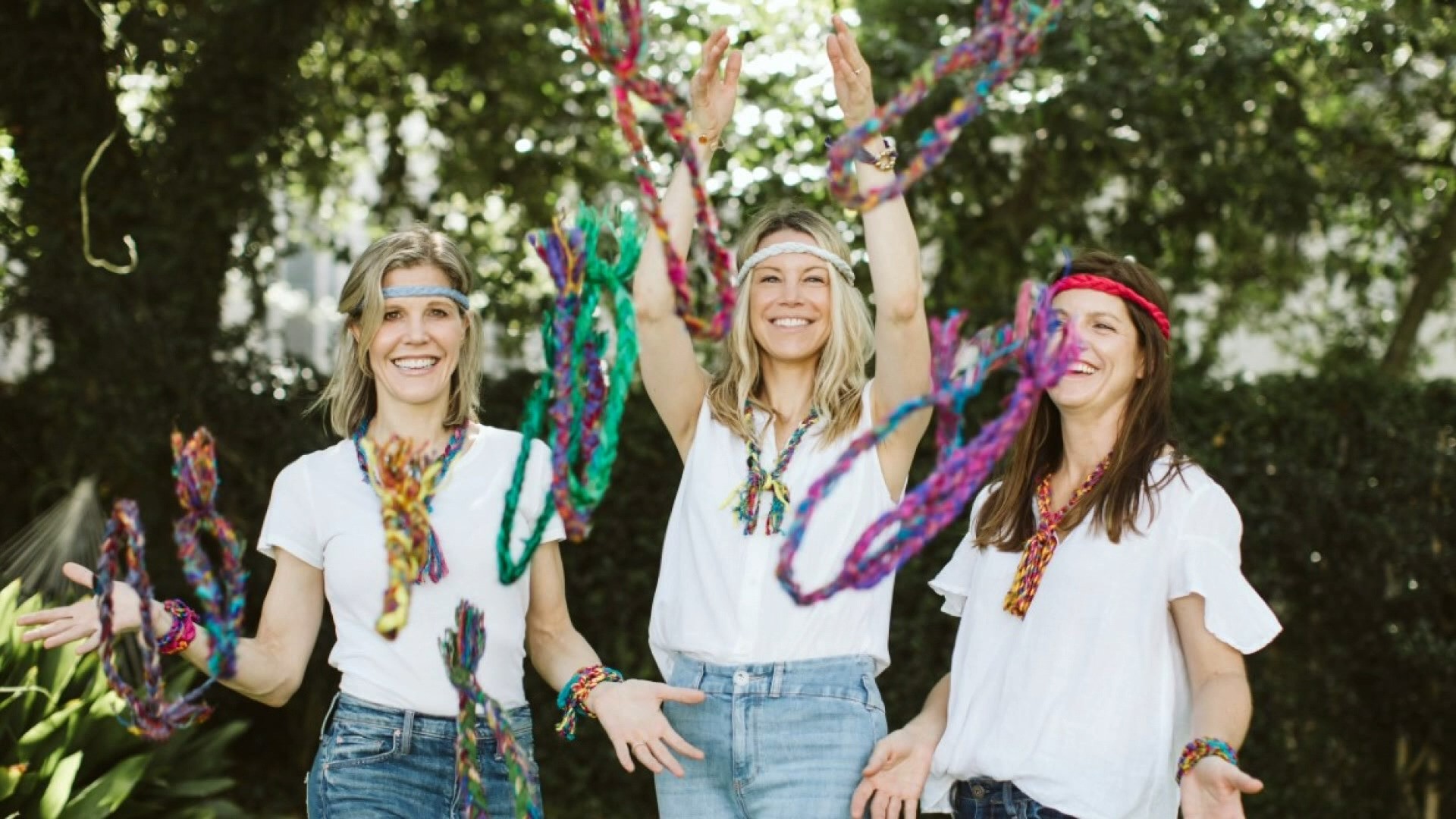NEW ORLEANS — After devastating flooding in New Orleans, the city implemented a cleaning project that pulled 46 tons of Mardi Gras beads from clogged catch basins in 2018. All of that waste had some krewe members from sitting out of Carnival.
Penn Larocci remembers talking to krewe members who said they wouldn’t ride because of the excess trash. That’s when she said a lightbulb went off in her head.
“I felt like this is a great business opportunity, but also really important to the city,” Larocci said.
That business opportunity was sustainable throws. Larocci joined forces with Allison Tiller and Melissa Montgomery who all felt the same way.
The group said it was the right time to take action, a kind of “Epiphany,” which was the perfect name for their company. (Plus the nod to the Feast of Epiphany, the official end of the Christmas season, and the start of Carnival).
The first step was to spend time researching different materials and finding three different ways to create sustainability: using biodegradable materials, recycling, and upcycling.
Then the group needed to find some partners, including some local companies plus others in South America, India and Peru. Some of those local partners include NOLA Couture and ricRACK which helps Epiphany take old and recycled Mardi Gras costumes and literally turn rags into riches or fun treasures.
“We’re taking pieces of costumes and creating something new,” Larocci said.
Epiphany began on a small scale for Carnival 2020. But parades were canceled in 2021 due to the coronavirus pandemic, which means 2022 is the company’s first fully-fledged Mardi Gras.
The group says they have met their goals financially, but realize it’s going to take time, and change, to grow the company. Sustainable throws cost more to make, so they come with a higher price tag. Even some people who love the concept aren’t yet willing to pay more.
“There is a knee-jerk reaction to say, ‘OMG, I’m used to paying $0.75 for that, an you are charging me $4,” Larocci said.
Larocci said that the throws are hand made and are not made with plastic which is incredibly cheap but comes at a higher cost to the environment. She added that their partners are also have safe work conditions and pay a fair wage.
Another goal for Epiphany is to “create a sense of community.” For example, Eden House, which has made some of the throws, gives local victims of human trafficking a fair wage and a purpose. What better way to feel a part of the city then to actually be a part of Mardi Gras?
► Get breaking news from your neighborhood delivered directly to you by downloading the new FREE WWL-TV News app now in the IOS App Store or Google Play.

